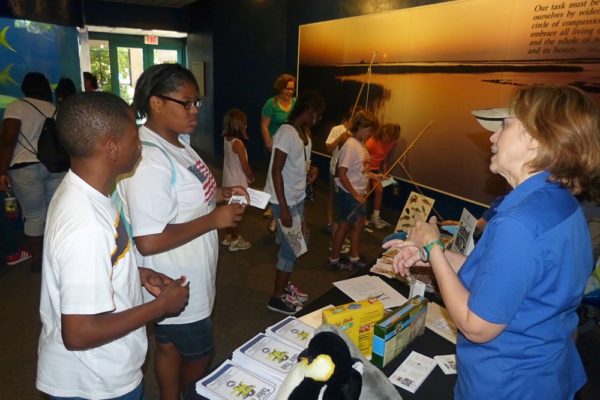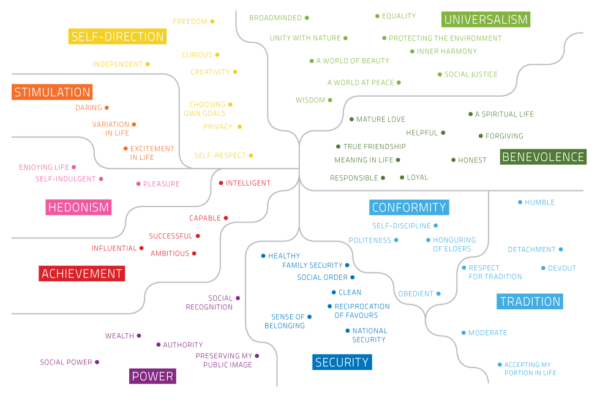-
Key considerations when asking visitors to act for conservation
Photo from Riverbanks Zoo & Garden, which made several conservation asks at their World Oceans Day event in 2012Our recent posts about aligning conservation information with visitor values and interests reviewed some ways in which visitors already value conservation and want to help. This week, we turn our attentions now to that next logical question: […]
Continue reading -
Weeky Round Up: speaking to people’s values has worth
If you’re a science communicator or educator at an informal science center (such as a zoo, aquarium, or museum) trying to encourage conservation action – this is the round up for you! Every Friday we break down the week’s most interesting news and best resources to help you frame the issues as effectively as possible. […]
Continue reading -
Seas the Day in April – Clean your home the ocean-friendly way!
The Seas the Day initiative encourages and empowers people to take ocean conservation personally. Each month, the Seas the Day initiative features a new conservation theme with ways to help so come back regularly for more ocean-helping ideas and tips! Created mainly to support our partner ZAMs (Zoos, Aquariums, and Museums and other visitor-serving organizations […]
Continue reading -
Weekly Round Up: tis the season for energy polls
If you’re a science communicator or educator at an informal science center (such as a zoo, aquarium, or museum) trying to encourage conservation action – this is the round up for you! Every Friday we break down the week’s most interesting news and best resources to help you frame the issues as effectively as possible. […]
Continue reading -
Youth, Digital Literacy, and Social Activism
With social networking platforms covering the bases of personal expression, current events, pop culture, professional news and trends, and photos (Facebook, Twitter, Pinterest, LinkedIn, Instagram, Foursquare, etc), there is no question that social media has become a necessary tool for organizations’ online communication. What makes this communication technology different from other mediums of info dissemination […]
Continue reading -
One of these things is not like the other: Comms. Round up
If you’re a science communicator or educator at an informal science center (such as a zoo, aquarium, or museum) trying to encourage conservation action – this is the round up for you! Every Friday we break down the week’s most interesting news and best resources to help you frame the issues as effectively as possible. […]
Continue reading -
Rapid Fire Round Up
There is so much good stuff to share this week that we’re doing it rapid-fire! We can continue the conversation in the comments, on Twitter, Facebook, LinkedIn – heck, you can even email us. It’s been a very interesting week for strategic conservation communicators, so read on for some polls, news, and potential storytelling angles. […]
Continue reading -
Special Round Up: risk as a climate change frame
Since we did our Weekly Communications Round Up on Monday this week, I thought I’d take a closer look at an interesting meme circulating through the climate change blogosphere: risk. There is a lot of talk about belief in climate change. All you have to do is look through our past Communications Round Ups and […]
Continue reading -
Weekly Round Up: turbine sickness? the answer is blowin’ in the wind
We have a Monday round up this week! Take a look at how youth are changing the climate conversation in popular media, climate change causes a coughing fit, and renewable energy can be contagious. Audience Your communications should take into account who you’re talking to. Millennials, Change, and Outlook for Climate Activism and Coverage In […]
Continue reading -
Seas the Day in March – Become a conscious commuter!
The Seas the Day initiative is meant to encourage and empower people to begin taking ocean conservation personally. It was created mainly to support our partner ZAMs (Zoos, Aquariums, and Museums and other visitor-serving organizations involved in our growing network) in motivating visitors and other individuals, both onsite and online, for conservation action. We have […]
Continue reading


